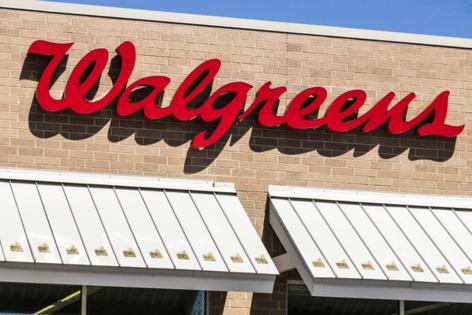Lynn Schmidt: The unintended consequences of 'defund the police'
Published in Op Eds
ST. LOUIS -- The closure of some St. Louis Walgreens stores is just one of the unintended consequences of the “defunding the police’’ rhetoric and policies as well as the culture of allowing crime without consequence. It also serves as an example that de-policing — or even the idea of de-policing — hurts the very people it is trying to help.
A couple weeks ago, Walgreens announced that it would close its store on 1400 North Grand Boulevard on April 9 because of “unsustainable business performance.”
Walgreens has been sustaining losses in many stores due to uncontrolled theft. There have also been reports of attacks on Walgreens employees and customers. All one has to do is search “Walgreens, St. Louis, and crime” to get a sense of the chaos many of the drug stores in the region are experiencing.
Following the announcement of the closure, U.S. Rep. Cori Bush, D-St. Louis, sent a letter to Walgreens CEO Tim Wentworth saying that the abrupt closure will have “devastating ripple effects” on her district’s most vulnerable residents, especially people on Medicare and Medicaid.
She went on to write: “With this most recent closure, countless patients will lose access to their neighborhood pharmacy, which means potential gaps in procuring lifesaving prescriptions and over-the-counter medications.”
Bush also noted that the most recent closure will worsen the already existing pharmacy deserts in St. Louis. She cited the 2023 closures of Walgreens stores at 3631 Gravois Avenue and 5550 South Grand Boulevard and said she saw firsthand how it negatively impacted her constituents.
As reported in the Post-Dispatch last month, Walgreens spokesperson Samantha Stansberry responded saying the company is in communication with Bush, but they will proceed with the store’s closure as planned.
“We look forward to working with elected officials, community leaders and others to address the barriers that make it difficult for us to operate pharmacies in various communities across the country,” Stansberry said.
There has also been an online petition circulating by members of the Jeff-Vander-Lou neighborhood asking the company to reconsider.
While Bush has been reacting to the closure of the store within her district, there seems to be little acknowledgement of her responsibility for the situation.
The closure of stores of all kinds is in part a result of progressive elected officials in the city pushing de-policing and “decarceration.” When people are not held accountable for their criminal actions, a permission structure is allowed to form that says crime is okay.
That said, the public is also culpable in this breakdown. The social contract between community members and the for-profit businesses in their neighborhoods has been eroded or completely broken as residents are not holding up their end of the bargain to shop and pay instead of stealing.
The closures are most unfortunate to the residents who use pharmacy services. But we should remember that Walgreens has legal obligations to their shareholders first and foremost and is not a social service agency.
In a paper published in 2015, economists John M. MacDonald, Jonathan Klick and Ben Grunwald confirmed prior research that demonstrates that police reduce crime.
University of Pennsylvania criminologist Aaron Chalfin co-authored a paper with economists who study crime and found that “Each additional police officer abates approximately 0.1 homicides” and “In per capita terms, effects are twice as large for Black versus white victims.” While the second paper addresses homicides, one could extrapolate their results to crime in general.
People don’t need to read studies to tell them that de-policing is not effective. They understand it on a personal level and will tell pollsters that it is not popular.
Back in 2020, an Ipsos/USA TODAY poll found that only 18% of respondents supported the movement known as “defund the police,” and 58% said they opposed it. Though white Americans (67%) and Republicans (84%) were much more likely to oppose the movement, only 28% of Black Americans and 34% of Democrats were in favor of it.
Only when voters start electing officials who represent their views on crime and policing and understand how governing affects their daily lives will things turn around. Then — and only then — will grocery and pharmacy deserts be a thing of the past.
There are real-life implications to progressive policies on crime and punishment. And it turns out it might just affect the health and well-being of the very constituents that progressive politicians claim to protect.
While it is sad and lamentable to see businesses leave communities that need or enjoy their services, it won’t be until society rejects lawlessness, and not only calls out criminals in their midst but encourages accountability, that our neighborhoods will find themselves at the “corner of happy and healthy,” to quote from the old Walgreens ad slogan.
____
©2024 STLtoday.com. Distributed by Tribune Content Agency, LLC.







Comments